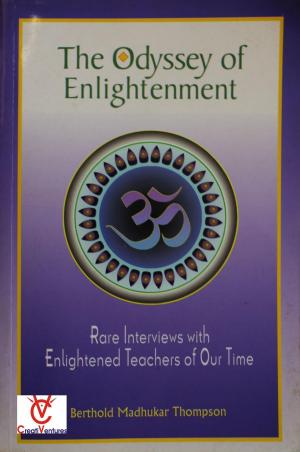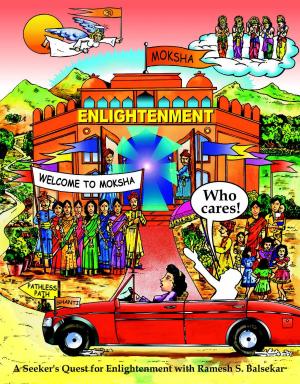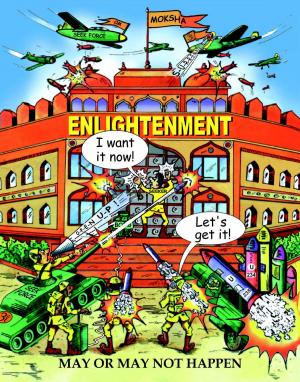(Un) Thinking Nationalism: From India to (H)india
Nonfiction, Religion & Spirituality, Philosophy, Political, Social & Cultural Studies, Political Science| Author: | CreatiVentures Publishing | ISBN: | 9781519933324 |
| Publisher: | CreatiVentures Publishing | Publication: | November 29, 2015 |
| Imprint: | Language: | English |
| Author: | CreatiVentures Publishing |
| ISBN: | 9781519933324 |
| Publisher: | CreatiVentures Publishing |
| Publication: | November 29, 2015 |
| Imprint: | |
| Language: | English |
Nationalism thinks and marks the space of people, that it imagines belong to it. There is a constitutive spatial and a constructed loyalist political dimension to all forms of nationalism. (Un)thinking nationalism is an attempt to (re)mediate these marked spaces, constructed identities, crafted exclusions, deliberate inclusions and varied subject positions ranging from triumphant privileged loyalty to treachery and betrayal of a traitor. In the context of this work, we are steadily led to revisit and renegotiate the rigid boundaries that are built around the nationalism that has swept our country in the past few decades. It strives to broaden the narrow exclusionary boundaries so that every son and daughter of mother India can remain happy in her embrace. This (un)thinking of nationalism, that this effort envisages, is to revive territorial and not cultural and religious nationalism, even though cultural and religious nationalism echo several forms of ethnic nationalism across the globe in our times.
The process of (h)indianization (mis)recognizes the minorities of India as not belonging to (h)india that is in a condition of already and not yet presence. (h)indiais come and yet to fully come. The fuller and perfect arrival of (h)india still remains. What we have is a substitute. Not a real (h)india that is identified and singularized from the plural golden past of our people. The minorities are given an unwelcoming subject position in the symbolic network of this (h)indic world and as a result are unhomed and exiled in their very own country. What is amazing is that (h)india does not have to exist at all as long as we are kept enslaved under the power of its fantasy. This is why all that we are left with is a substitute (h)india which cohabits and transcends the real India at the same time. The (h)india of the symbolic fantasy space has already taken most of us captive . Hence, the followers of (h)india act like a Big Brother who with his pretentious God’s eye keeps a watch on all, particularly the minorities. To some extent in this scenario, the resisting non-(h)indians become a stain, a hole that threaten to puncture the pure fantasy of the Big Brother and thus become an object elevated to the dignity of a Thing. This makes them little wheels that have to turn on to bring (h)india into being. This means the non-(h)indians are viewed as a blot on the otherwise seamlessly pure surface of the phantsmic image of (h)india. Hence, the consequence of the symbolic order of fantasy (h)india is that the Big Brother can only (mis)recognize himself/herself, India and its people. That is why the (un)thinking that we have attempted to bring about is motivated by a profound love and respect for India and its people and is urgent and vital.
Nationalism thinks and marks the space of people, that it imagines belong to it. There is a constitutive spatial and a constructed loyalist political dimension to all forms of nationalism. (Un)thinking nationalism is an attempt to (re)mediate these marked spaces, constructed identities, crafted exclusions, deliberate inclusions and varied subject positions ranging from triumphant privileged loyalty to treachery and betrayal of a traitor. In the context of this work, we are steadily led to revisit and renegotiate the rigid boundaries that are built around the nationalism that has swept our country in the past few decades. It strives to broaden the narrow exclusionary boundaries so that every son and daughter of mother India can remain happy in her embrace. This (un)thinking of nationalism, that this effort envisages, is to revive territorial and not cultural and religious nationalism, even though cultural and religious nationalism echo several forms of ethnic nationalism across the globe in our times.
The process of (h)indianization (mis)recognizes the minorities of India as not belonging to (h)india that is in a condition of already and not yet presence. (h)indiais come and yet to fully come. The fuller and perfect arrival of (h)india still remains. What we have is a substitute. Not a real (h)india that is identified and singularized from the plural golden past of our people. The minorities are given an unwelcoming subject position in the symbolic network of this (h)indic world and as a result are unhomed and exiled in their very own country. What is amazing is that (h)india does not have to exist at all as long as we are kept enslaved under the power of its fantasy. This is why all that we are left with is a substitute (h)india which cohabits and transcends the real India at the same time. The (h)india of the symbolic fantasy space has already taken most of us captive . Hence, the followers of (h)india act like a Big Brother who with his pretentious God’s eye keeps a watch on all, particularly the minorities. To some extent in this scenario, the resisting non-(h)indians become a stain, a hole that threaten to puncture the pure fantasy of the Big Brother and thus become an object elevated to the dignity of a Thing. This makes them little wheels that have to turn on to bring (h)india into being. This means the non-(h)indians are viewed as a blot on the otherwise seamlessly pure surface of the phantsmic image of (h)india. Hence, the consequence of the symbolic order of fantasy (h)india is that the Big Brother can only (mis)recognize himself/herself, India and its people. That is why the (un)thinking that we have attempted to bring about is motivated by a profound love and respect for India and its people and is urgent and vital.















